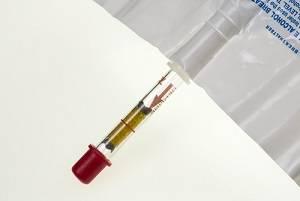Breathalyzer vs. Body Temperature
 Since the day we are born, it is instilled upon us that everyone is different and unique. No two people are exactly alike, not even identical twins. Yet, almost everything produced today is based on results for the “average person”. As everyone is different, there logically really cannot be an “average” for some things. Take for example, a breathalyzer. A breathalyzer determines the Blood Alcohol Concentration (BAC) in your system when you breathe into it. Police officers today use this as a ready tool for charging an individual with driving under the influence (DUI). However, these charges can drastically change someone’s future leaving many to wonder, how accurate are they really?
Since the day we are born, it is instilled upon us that everyone is different and unique. No two people are exactly alike, not even identical twins. Yet, almost everything produced today is based on results for the “average person”. As everyone is different, there logically really cannot be an “average” for some things. Take for example, a breathalyzer. A breathalyzer determines the Blood Alcohol Concentration (BAC) in your system when you breathe into it. Police officers today use this as a ready tool for charging an individual with driving under the influence (DUI). However, these charges can drastically change someone’s future leaving many to wonder, how accurate are they really?
The answer: not very. While the concept of the breathalyzer is well intentioned, the execution of the invention has one major flaw. The basis of the breathalyzer calculations are on the average person, the one that does not exist. Let us also take into account that a breathalyzer measures BAC only indirectly, via the expiration of breath from the lungs, rather than directly from the blood. This alone gives a wide margin of error. While this is something that is incessantly redeveloped and argued, the current measuring system is inadequate to say the least.
Factors Affecting Blood Alcohol Concentration (BAC)
It is widely known that everyone handles their alcohol differently. However, there is more to it than simply a difference in tolerance levels. There are a wide variety of factors that alter the way alcohol can effect us. These factors include (but are not limited to):
- Age;
- Gender;
- Race;
- Person’s size;
- Physical condition; or
- What they ate that day.
Body Temperature Correlation
Another lesser known fact is that body temperature can also play a factor in the level of your BAC. This was first discussed in 1982 in an article titled “Body Temperature and the Breathalyzer Booby-Trap” published by the Michigan Bar Journal and then again by Professor Michael Hlastala at the University of Washington in his article “Physiological Errors Associated with Alcohol Breath Testing.” The basic conclusion states that if you have a fever, or your body temperature is off by even one degree Celsius (1.8 degree Fahrenheit), your BAC result can be higher by up to seven percent. The science behind it is that the 1:2100 blood-to-alveolar air ratios used by a breathalyzer to detect BAC are directly related to Henry’s Law, which states that “at a constant temperature, the concentration of gas dissolved in a liquid is proportional to the concentration of air directly above the liquid.” The key phrase here is “constant temperature.” On a daily basis, our body temperature fluctuates as much as 1.8 degrees up or down throughout the day. If you factor in being sick with a fever or even an increased temperature due to physical activity such as dancing, there is a higher likelihood of an inaccurate BAC result.
With such a test that even something as simple as being sick can alter true results, the validity of the test nearly always can be questioned. Remember that even if you have been charged with a DUI, guilt is never absolute. If you are facing DUI charges and are in need of a dedicated Cook County DUI attorney, Stringini & Garvey, P.C.offer the highest quality representation to protect your rights and freedoms. Call us today to set up your free consultation at 630-834-9595. We are proud to offer 24 hour availability and look forward to providing the defense you deserve.
Sources:
http://awareawakealive.org/educate/blood-alcohol-content
https://www.boundless.com/physiology/textbooks/boundless-anatomy-and-physiology-textbook/the-respiratory-system-22/gas-laws-210/henry-s-law-1032-977/



